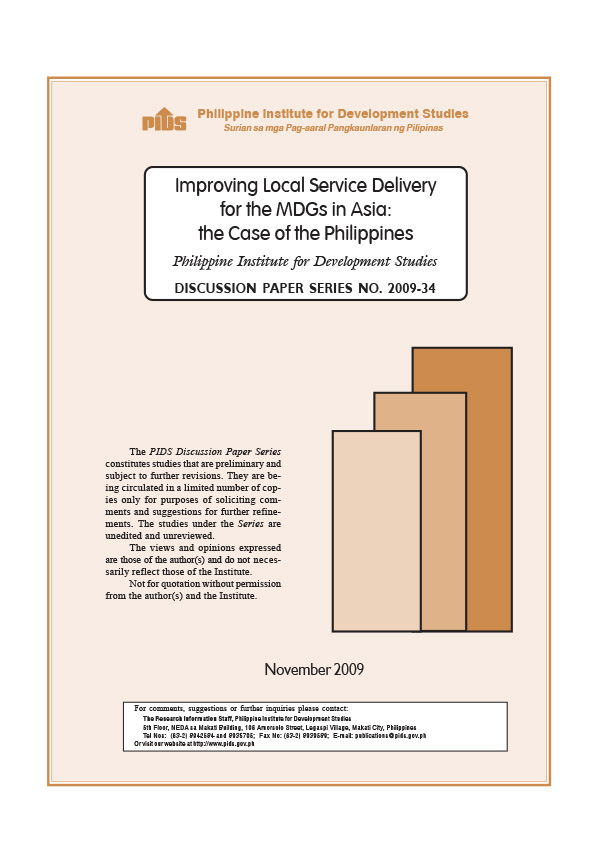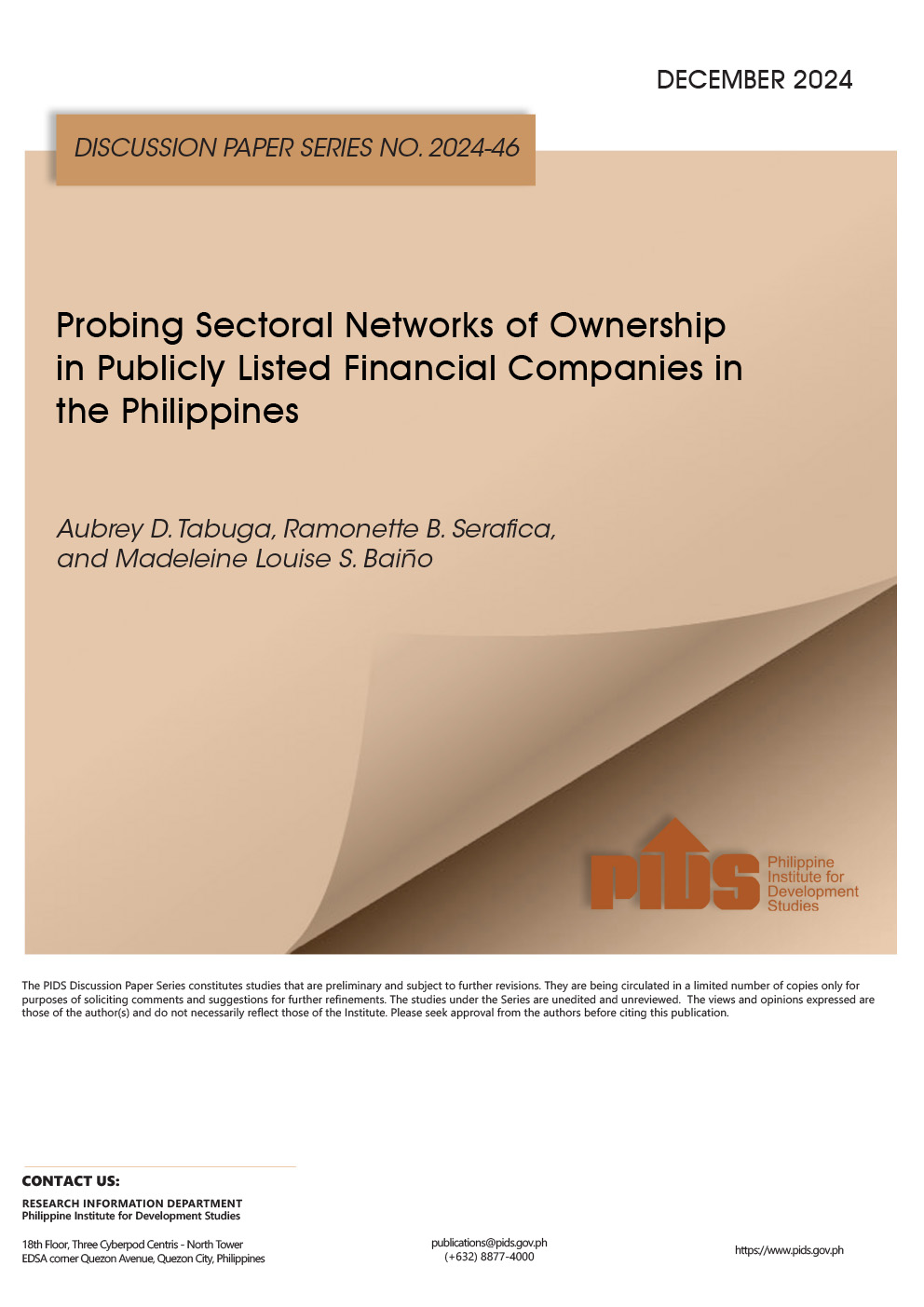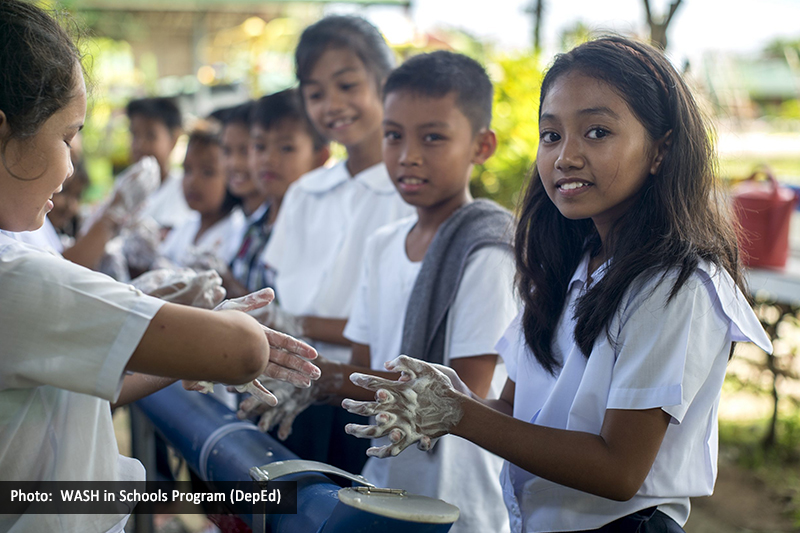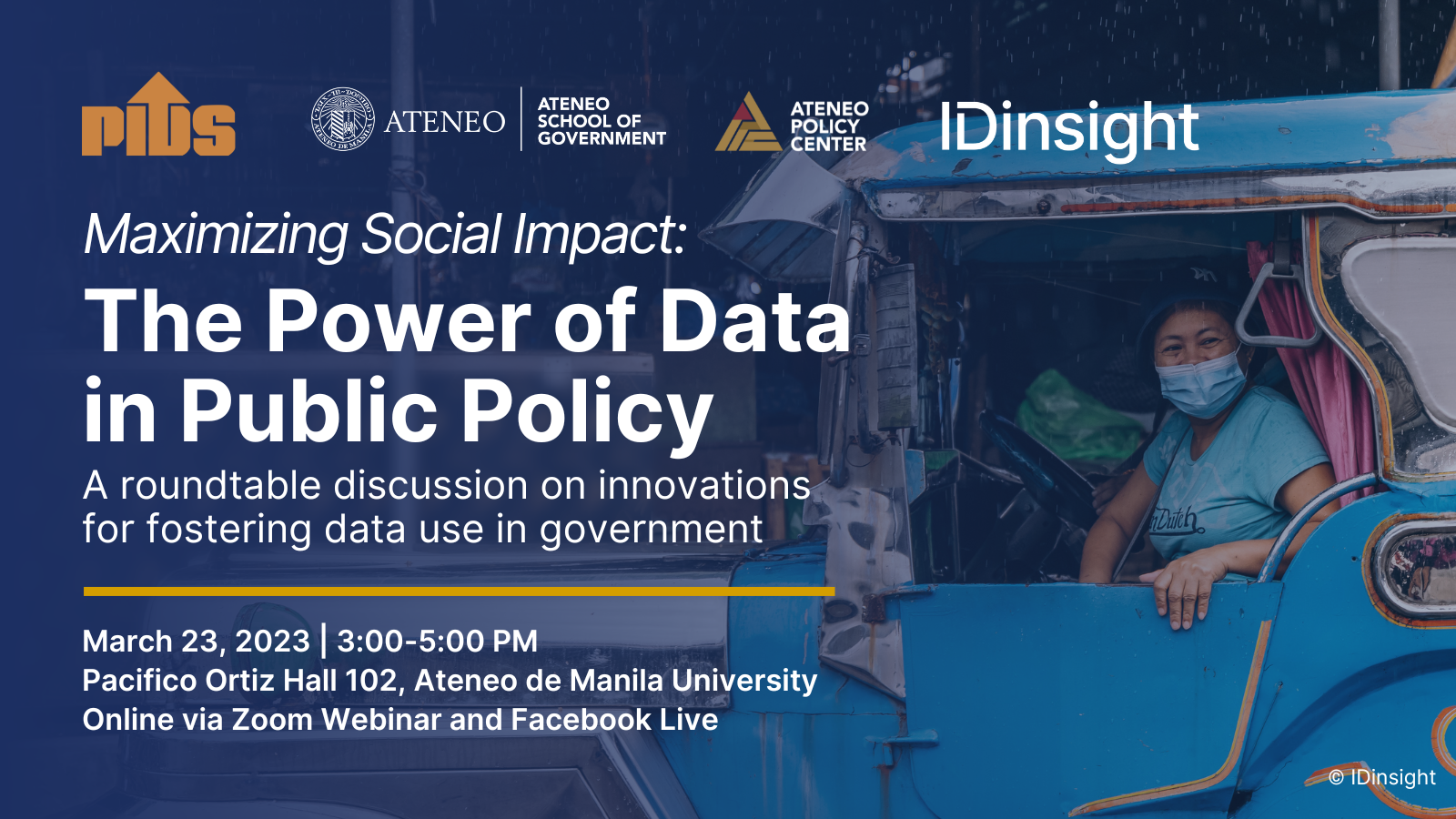This report argues that improving local service delivery (LSD) is about improving people’s lives. It is premised on the idea that better provision of public goods and services is a prerequisite to realizing human capabilities, thus expanding human freedoms and enhancing human lives for a better society. It investigates on improving local delivery of MDG-critical services such as education, health, and water, with a view to formulating sectoral decentralization policy frameworks that would serve as inputs to national strategies and plans in improving LSD in the Philippines. It develops a Triangulation Framework as a tool of analysis that provides a perspective on how to better understand the dynamics of LSD systems and the requirements for improving them through the interdependence of policy, institutions, and finance. Corollary argument is that institutional actors take a primordial role in improving LSD systems and practices despite policy and financial gaps and development challenges. Policy, institutional, and financial analyses at the national level are provided in contextualizing the sectoral discussions on primary and secondary education, maternal and child health, and potable water based on sector analysis and performance outcomes in the LSD areas of Agusan del Sur and Dumaguete City. The main thrusts of the sectoral discussions are the key findings, issues and challenges, reforms and recommendations, and areas for further research. The cross-cutting key findings are: (a) seeming universal espousal of people-centered service delivery; (b) critical role of LCEs in improving LSD; (c) scarcity of resources; (d) practice of needs-based prioritization of local officials; (e) need for constant capacity development of local governments; (f) crucial role of the national government in providing support; (g) imperative to balance national, regional, and local development plans; (h) presence of success/failure factors related to service standards; (i) nexus of supply-side and demand-side of governance; (j) omnipresence of politics even in matters of local service delivery; and (k) limited availment of opportunities for public-private partnerships. Based on the key findings, the major conclusions are: (i) the three sectors, i.e., education, health, and water supply, are complementarities and require holistic frameworks; (ii) decentralization can only create an enabling environment for local service delivery if and only if it is designed properly; (iii) improvement of local service delivery systems and practices depends greatly on the interdependence of policy, institutions, and finance; (iv) accountability could serve as an analytic framework of local service delivery; and (v) local service delivery systems do not exist in vacuums but are played out in oftentimes unfavorable political, economic, and social milieu.
Citations
This publication has been cited 1 time
- Israel, Danilo C. 2013. An assessment of the local service delivery of potable water in Dumaguete City and selected areas of Agusan del Sur Province. Philippine Journal of Development PJD 2009, XXXVI, no. 2. Philippine Institute for Development Studies.













